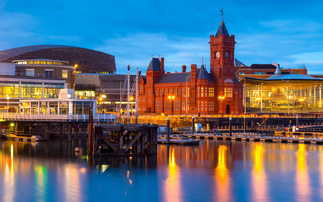Island nation says it will continue to lead the 'High Ambition Coalition' as its Parliament rubber stamps climate treaty
The Republic of the Marshall Islands has become the third country in the world to ratify the Paris Agreement after its Nitijela - national Parliament - approved the treaty late last night.
The country joins Fiji and Palau in ratifying the landmark treaty, which commits more than 190 nations to work together to limit global warming to "well below" two degrees by the end of the century.
Marshallese President Hilda Heine and Foreign Minister John Silk will now travel to New York to take part in the UN signing ceremony for the treaty on April 22.
Heine said that by becoming one of the first countries to ratify the Paris Agreement in law the Marshall Islands has shown its determination to "lead from the front" on climate change.
"The big tasks now are to ensure that the Paris Agreement enters into force as soon as possible, and that governments move quickly to realign their emissions targets with the new 1.5ºC warming limit the world agreed to pursue in Paris," she said in a statement.
The news comes just 10 days after the low-lying island nation declared a State of Disaster in response to worsening drought conditions, which has left the capital Majuro with less than three months' worth of freshwater supplies.
Last week the Marshallese Parliament confirmed former Foreign Minister Tony de Brum would take up a new post as the country's Ambassador for Climate Change.
De Brum was one of the key figures behind the 'High Ambition Coalition' at the Paris Summit, which succeeded in securing a commitment from nations to try to limit warming to 1.5 degrees, a target considered essential for the survival of low-lying Pacific island states.
This article is part of BusinessGreen's Road to Paris hub, hosted in association with PwC.









